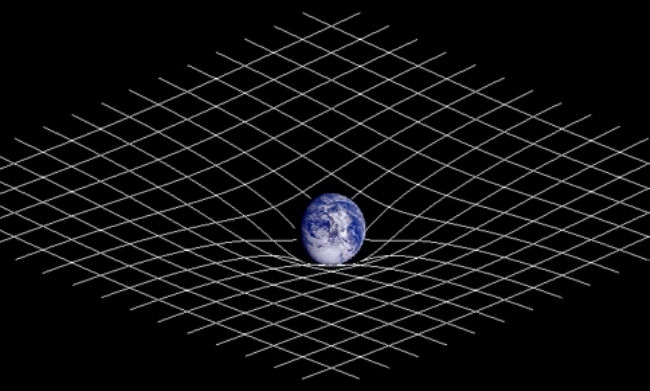Gravitational Waves Detected: Proof for the Relativity Theory Now Exists?
A recent discovery of gravitational waves captured by a BICEP telescope may become one of modern science and technology’s greatest highlights. It is being tagged as a Big Bang breakthrough, something that is expected to shed light on the mystery of the origin of the universe.
Earlier this week, US astronomers claimed that they have detected the occurrence of gravitational waves that can serve as compelling evidence to support the theory of “cosmic inflation.”
If proven true, the detection of gravitational waves will be deemed as a confirmation of Albert Einstein’s theory of relativity.
What are gravitational waves?
Gravitational waves are basically space-time ripples believed to be the “first tremors of the Big Bang.” This is according to the Harvard-Smithsonian Center for Astrophysics. These ripples were predicted by Albert Einstein in 1916. They are said to transport energy as gravitational radiation. Possible origins of gravitational waves that can be detected by currently available equipment include binary star systems, black holes, and neutron stars.
Until the Monday announcement, there have been no actual proof, report, or direct detection of the existence of gravitational waves. They were just an idea backed by calculations and indirect evidence. Now, if the report gets confirmed, the existence of gravitational waves will be established as a reality and will set a massive impact on scientific knowledge.
How is it different from gravity waves?
Unlike gravitational waves, gravity waves are a type of wave created in a fluid medium or at the point where two media meet, which bears the restoring force of gravity or buoyancy. An example of this is the surface waves, wind waves in particular, created by the interaction between the oceans and the atmosphere. These waves happen because of gravity’s natural tendency to try to restore the equilibrium between media with differing densities, causing an oscillation.
Why is the gravitational wave discovery important?
Proving the existence of gravitational waves, for most scientists, means backing the hypothesis of inflation and the Big Bang Theory. This discovery can lead to a new way of studying the universe.
How were the gravitational waves detected?
A telescope referred to as BICEP or Background Imaging of Cosmic Extragaclatic Polarisation has been positioned in the south pole to actively search for the presence of gravitational waves. This telescope was designed to detect large-scale polarization of cosmic microwave background radiation, something that only primordial gravitational waves are capable of manifesting, and only after getting amplified by cosmic inflation.
The people responsible for the detection is a group of astrophysicists under the BICEP2 collaboration.
What is cosmic inflation?
Inflation essentially describes the rapid expansion or enlargement of the universe after the presumed Big Bang event. This rapid expansion has a speed that is radically faster than the speed of light. This theory was originally proposed in 1980 by American physicist Alan Guth. The theory of inflation aims to explain why the universe appears to be isotropic or similar in all directions. It also explains why the cosmic microwave background radiation has an even distribution.
So gravitational waves were detected, does this mean that Einstein’s theory has now been validated?
A Princeton University astrophysics professor, David Spergel, opines that skepticism has to be observed for now. It is necessary to do a thorough validation of the recently reported detection of gravitational waves. It may take a year, two, or even more before a confirmation or refutation is established through other experiments. Spergel says that the process of detecting gravitational waves is a very difficult one, something that can be easily contaminated. Hence, what has been reported is definitely not yet final and has to be carefully examined.
The report of gravitational wave detection is only the start of something that could change the way the world knows astrophysics or physics in general. It is something way more significant than the demotion of Pluto as a planet. It is something that can finally provide a direction on the currently conflicting physics theories of quantum mechanics and general relativity.
![By NASA/JPL-Caltech (http://photojournal.jpl.nasa.gov/jpeg/PIA17993.jpg) [Public domain], via Wikimedia Commons](https://techtheday.com/wp-content/uploads/2014/03/BICEP2-Telescope.jpg)
By NASA/JPL-Caltech (http://photojournal.jpl.nasa.gov/jpeg/PIA17993.jpg) [Public domain], via Wikimedia Commons
While all of these may not sound that easily understandable, everything should become clearer as soon as physicists conduct their investigations and come up with a unified voice on the topic. There’s still more to do to meticulously sort things out before finally concluding that mankind has indeed achieved a milestone in exploring the origin of the universe, and to finally know which between the theories of relativity and quantum mechanics should prevail.

![By National Science Foundation [Public domain], via Wikimedia Commons](https://techtheday.com/wp-content/uploads/2014/03/Gravitational-Wave.jpg)
![By NASA / WMAP Science Team [Public domain], via Wikimedia Commons](https://techtheday.com/wp-content/uploads/2014/03/Cosmic-Inflation.jpg)